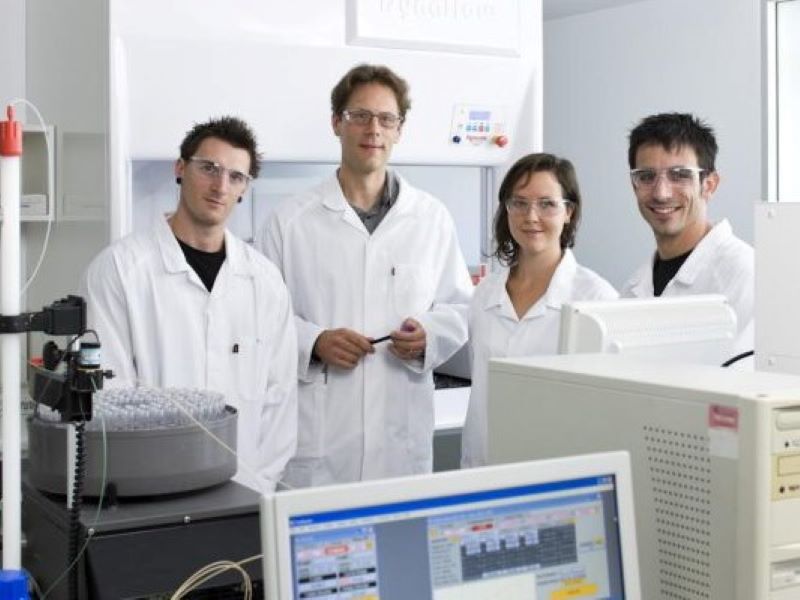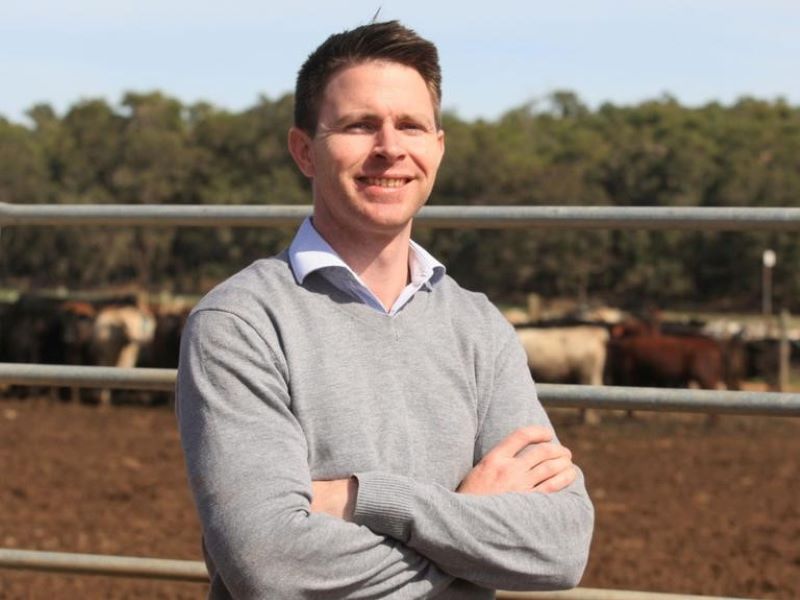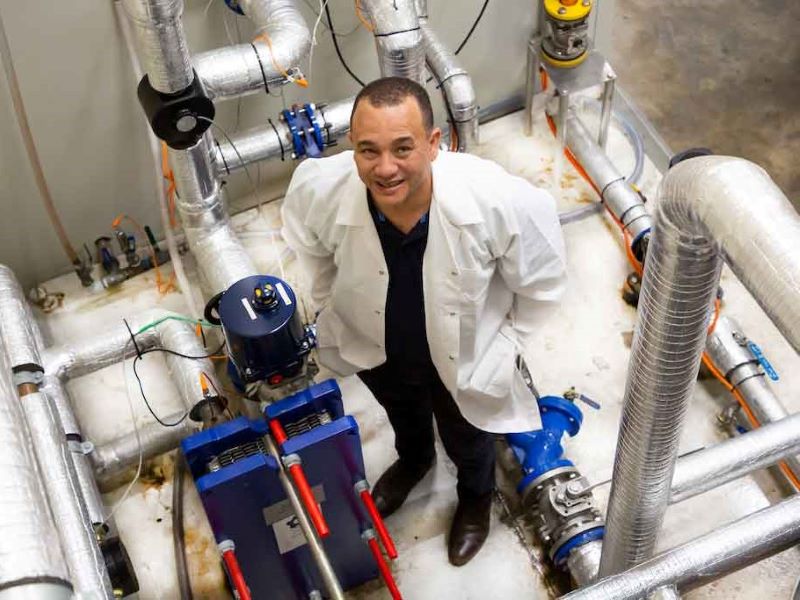Supercapacitors, a livestock trading platform and low emissions cooling are among the latest recipients of Accelerating Commercialisation grants from the federal government, which the founders say remains crucial to the Australian innovation system.
The Industry department quietly published the list of recipients for the latest funding offers last month in a move away from the usual minister’s announcements. It showed 37 companies had shared $19.7 million to help get their innovations to market.
The latest funding offer comes with the long-running Accelerating Commercialisation (AC) grants program facing an uncertain future after dispersing 325 grants worth more than $310 million since 2015.

Allegro Energy, a startup based on the research of University of Newcastle Professor Thomas Nann secured $500,000 in the latest offers, which are matched by non-government co-investment.
Its AC grant will be used to manufacture pilot scale supercapacitors that use a patented materials class based on a water-based electrolyte.
The breakthrough came from Professor Nann’s determination to develop electrochemical energy storage, an area he says has been neglected for the last century.
He started by removing from consideration any elements that were radioactive, toxic or not in abundant supplied.
“If you do that, you end up with about 10 materials left. So, we used only that,” Professor Nann told InnovationAus.com.
“About six or seven years ago, we had this major breakthrough where we discovered a new type of battery electrolyte that is water based and that if you use in different types of batteries it still performs pretty much the same, or very, very well in comparison.
“We basically found something that’s sustainable, but still high performing.”
The microemulsion electrolyte is the basis of the batteries and supercapacitors been made by Allegro Energy, which was co founded by Professor Nann and his PhD students .
The storage technologies will be key to Australia and the world’s transition to renewable energy and Allegro Energy says it can make them up to 100 times cheaper because the electrolyte makes up most of the storage technology price.
“Generating renewable energy is not really the problem that we’re facing long term [in Australia],” he said.
“The big problems are actually in matching supply and demand and firming the electricity grid.”
Allegro Energy’s pilot manufacturing line is already up and running in Newcastle, with the Accelerating Commercialisation grant to up production and get more supercapacitors into the hands of end users for validation and testing.
The supercapacitors — devices that can store large amounts of energy — release it in fast bursts, and then recharge rapidly have huge potential for transport.
Newcastle’s tram system already uses traditional supercapacitors to recharge at every stop, without the need for overhead powerlines, while the devices are important parts of electric vehicle charging.
But if Allegro can deliver the cheaper electrolyte technology it has potential to be used in something like grid stabilisation. The highly automated manufacturing process required also makes domestic production much more feasible, Professor Nann said.
Accelerating Commercialisation grants are typically released in milestone payments against agreed progress. But the government does not take any stake in the venture.
Professor Nann said it is “absolutely crucial” for government’s to fund ventures like Allegro Energy because it helps level the international playing field.
“Our European and US competitors are usually much, much better funded, and can get ahead because they were able to make progress in a non diluted way.
“So this [government funding] is this is crucial and has to be increased for Australia to be competitive and not to lose industries.”
The grants are crucial, according to another of the latest recipients, Agora Livestock. The Perth startup is developing a platform to connect livestock sellers, agents and buyers.
Founder Rob Kelly said his platform gives livestock buyers potential access to thousands of farmers after a sign-up process that takes just minutes.

The company received a $550,000 grant to add a marketplace function to the platform that will allow a farmer or agent to offer livestock to buyers.
The new marketplace function will add a revenue stream from the facilitated sales through a fee, with Agora looking to expand across the country.
The grant has been instrumental in allowing the startup to focus on the platform functionality and not chase private investment, Mr Kelly said.
“It is absolutely huge. Otherwise, we’re relying on private funding or revenue to get us to this point to be able to develop this stuff. That can take a long time and as a small business and startup and someone who really needs to be able to move quickly, you just can’t necessarily do that without this sort of funding.”
Glaciem Cooling, a startup commercialising heating, refrigeration and air conditioning research out of the University of South Australia, received $516,165, to develop a low carbon cooling system for supermarkets.
Heating, ventilation, air conditioning and refrigeration uses around 25 per cent of the electricity generated in Australia and produces about 11.5 per cent of Australia’s national emissions.
Glaciem Cooling’s latest grant follows four years of research and development into how to ways to reduce carbon emissions or the carbon footprint for refrigeration and air conditioning, Glaciem Cooling technical director Julian Hudson told InnovationAus.
The best way to do that is to move from the hydrofluorocarbons (HFCs) refrigerants currently common in the systems that keep fridges in supermarkets cold to natural refrigerants, with the best suited being carbon dioxide, according to Mr Hudson.
“C02 has been used extensively in Europe in cold climates, but one of the issues with is that the hotter it gets, the less efficient to gets.”

Glaciem Cooling is taking the technology of global cooling company Seely, adding its own award winning air cooling technology based on the university research, and controlling it with smart software.
“Carbon dioxide systems always think that they’re operating in a cold climate. So our trials, even on a 47 degree day, are able to produce 12 degree air and hence increase the efficiency of the system,” Mr Hudson said.
The AC grant will commercialise the work, which Mr Hudson said has progessed through the Technology Readiness Level scale and is at the commercial trial and scale up phase. It puts the project at the level just before multiple commercial applications are developed and market competition.
Large supermarkets, increasingly concerned by their scope one and two emissions, are interested, Mr Hudson says, with Glaciem Cooling’s product able to increase their cooling efficiency by up to 15 per cent and reduce peak demand by up to 24 per cent.
The federal AC grant fills a gap for Glaciem Cooling, which has already received support for its research phase form the South Australian government, Austrade and the Australian Renewable Energy Agency, and helps to commercialise the work without diluting ownership.
“Once you’ve taken something [Technology Readiness Level] nine, you’ve proved the technology. To commercialise it, that’s where the AC grant really comes in, [to] take it out of R&D and to scale up… Businesses like us wouldn’t survive without that [support]. Unless you sell your soul to some venture capitalists.”
Uncommitted funding for the overarching Entrepreneurs’ Programme was cut by the Albanese government in its first budget to help set up the $15 billion National Reconstruction Fund. The program has also been reviewed ahead of next month’s budget, casting further doubt on the long running program.
Industry minister Ed Husic this week said the government is still “committed to maintaining existing funding around commercialisation”.
Do you know more? Contact James Riley via Email.

